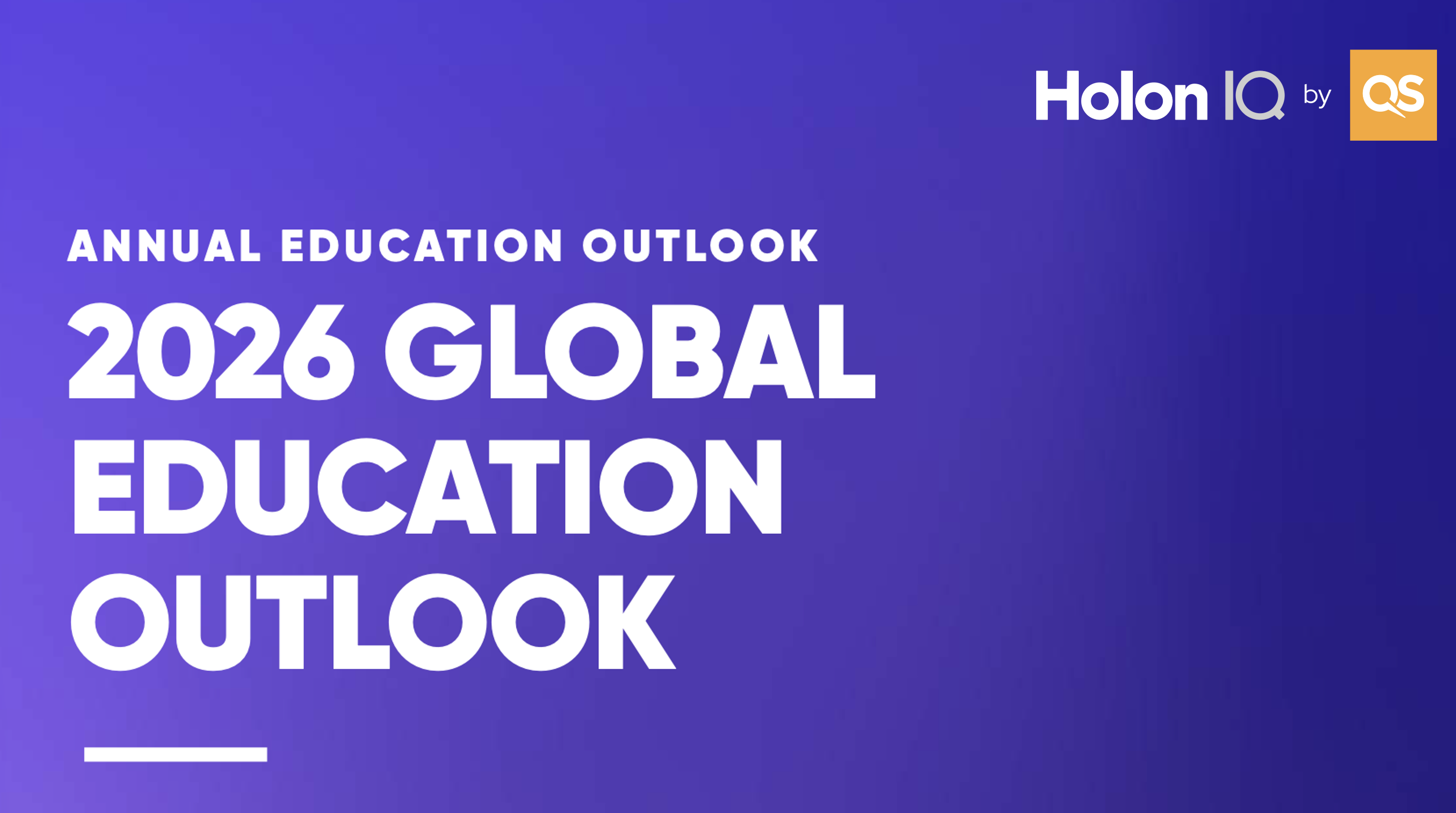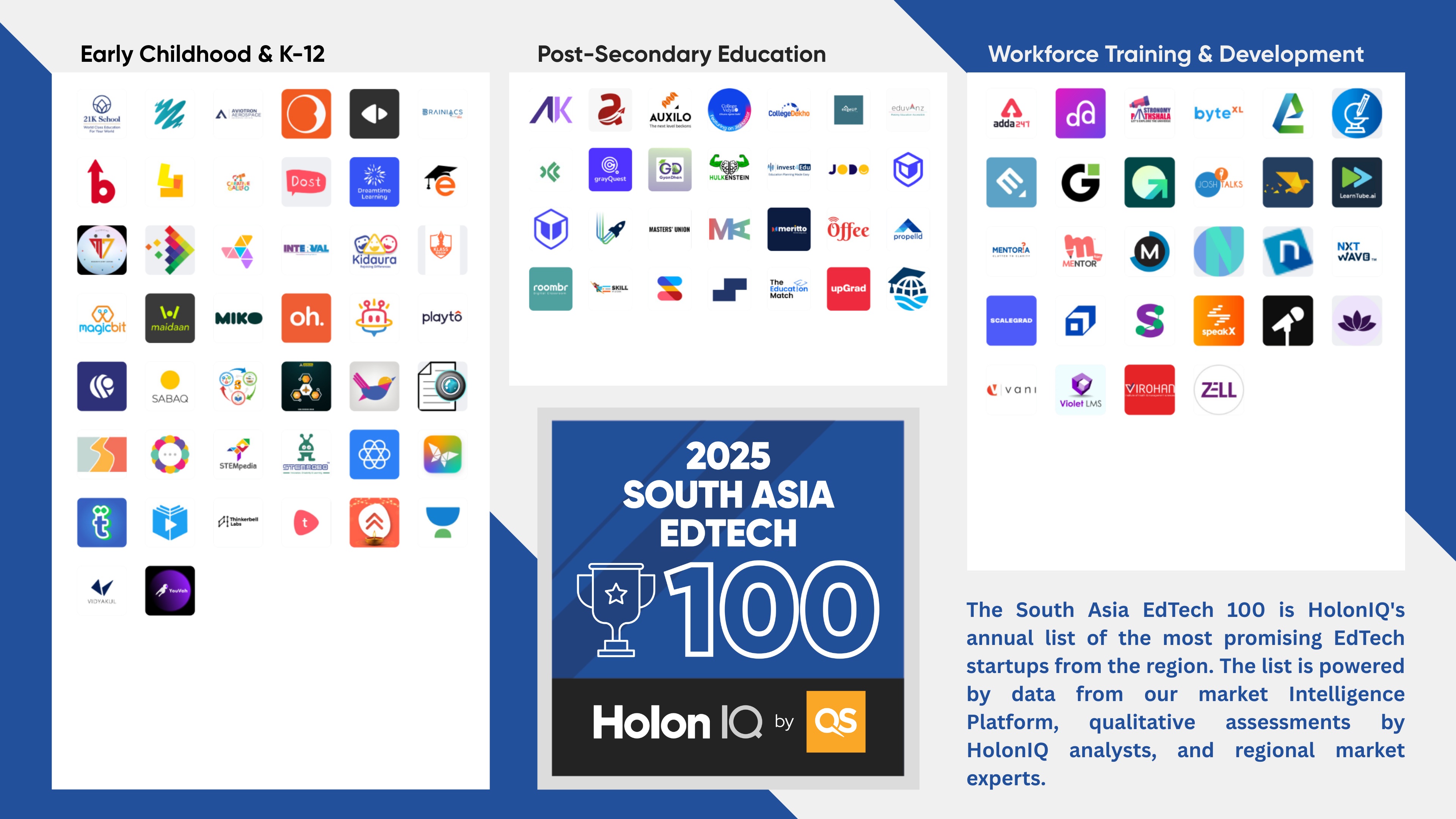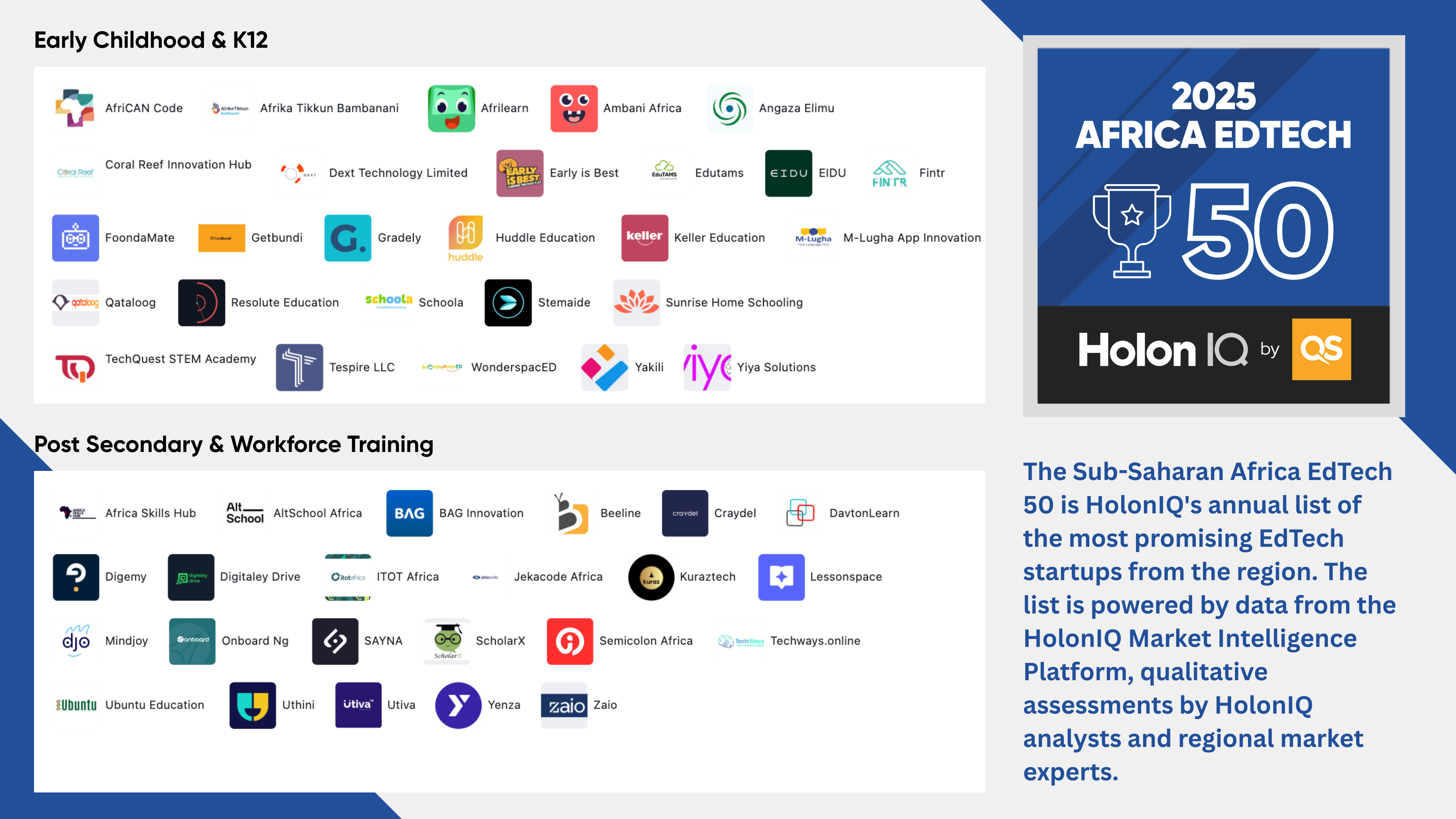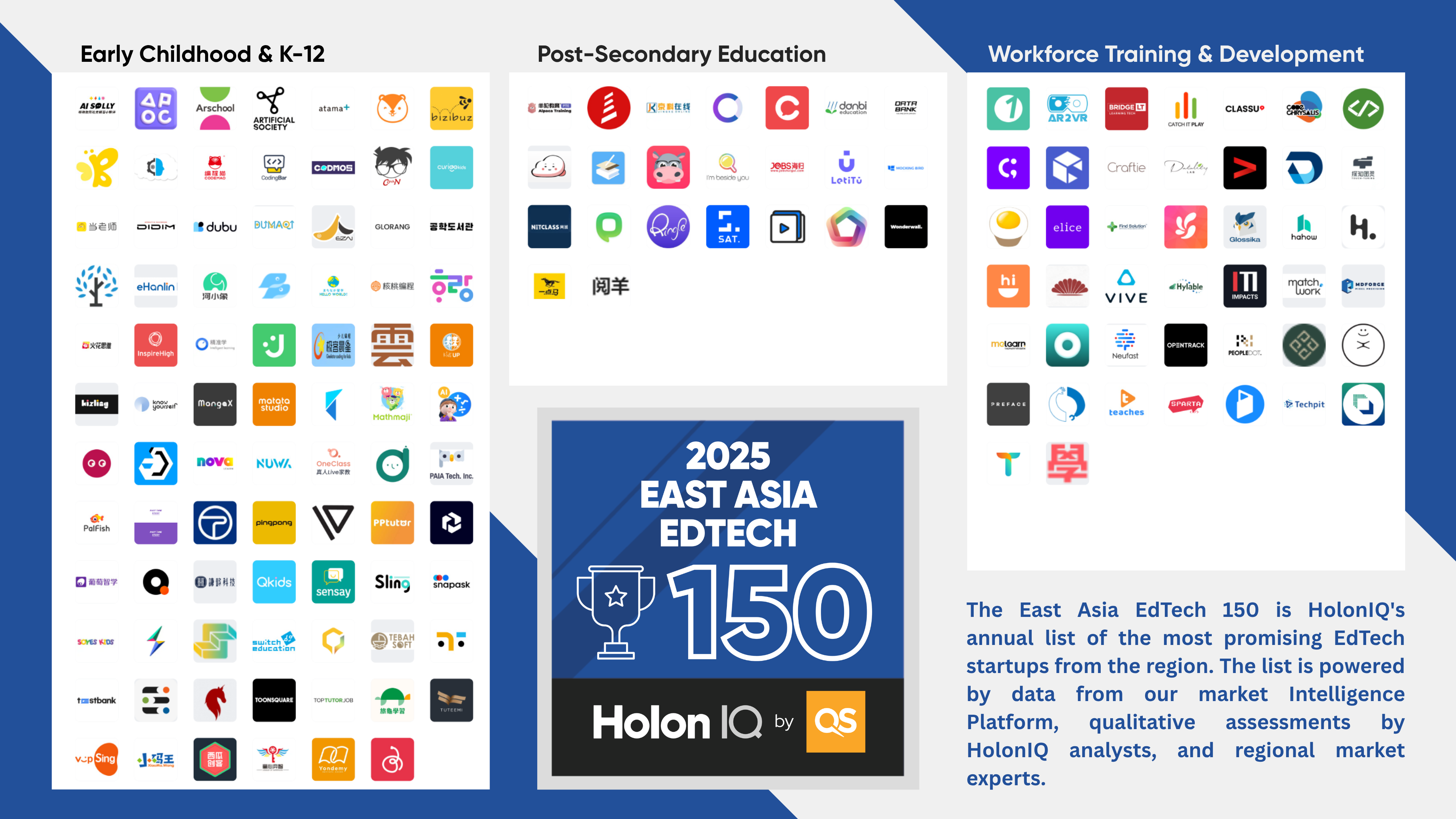This briefing summarizes results from HolonIQ’s annual Digital Transformation survey, conducted with the Global Higher Education Network.The survey references the Higher Education Digital Capability (HEDC) Framework (www.digitalcapability.org), which is informed by global academic research and input from higher education leaders internationally. The HEDC framework offers an overarching view for institutions to map and benchmark digital capabilities across the learner lifecycle, ultimately to support practical and sustainable approaches to digital services and online learning.This special analysis forms part of a longitudinal study into digital capability in Higher Education. Through the exploration of cross-sectional data, this report includes perspectives from a diverse mix of stakeholders globally and builds on the findings from the 2020 and 2021 Global Higher Education Digital Capability reports.
The survey references the Higher Education Digital Capability (HEDC) Framework (www.digitalcapability.org), which is informed by global academic research and input from higher education leaders internationally. The HEDC framework offers an overarching view for institutions to map and benchmark digital capabilities across the learner lifecycle, ultimately to support practical and sustainable approaches to digital services and online learning.This special analysis forms part of a longitudinal study into digital capability in Higher Education. Through the exploration of cross-sectional data, this report includes perspectives from a diverse mix of stakeholders globally and builds on the findings from the 2020 and 2021 Global Higher Education Digital Capability reports.
Higher Education Digital Capability Framework
The Higher Education Digital Capability (HEDC) Framework is a learner focused, practical and flexible approach to mapping and measuring digital capability in higher education institutions.
The Framework is built on four core dimensions with sixteen underlying domains. Each domain is comprised of multiple blocks that represent digital capabilities. The Framework acknowledges educational literature on digital capability and grounds these in current practice using ongoing consultation, research and analysis with higher education leaders around the world.

Digital adoption, transformation and maturity
Digital adoption and transformation remains the greatest challenge across regions and institutions globally. Since last year, we've seen a sharp increase in the proportion of higher education leaders citing digital transformation as one of their biggest issues (from 50% to 69%). Comments suggest broad and deep reflection on the long-term higher education transition to digital, from systems, policies and infrastructure to learning and teaching design and delivery.
Other top challenges for universities include funding/ budget cuts (48%), changing workforce needs (37%), and student access to education (34%). Like many other sectors, higher education institutions are seeing reduced stimulus measures and challenging economic conditions, along with increasing scrutiny on value for money, equity and relevance to industry and workforce needs. At the same time, institutions can be slow to evolve, and legacy cultures and approaches continue to challenge transformation initiatives.
.png)



















